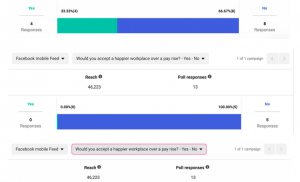One in five workers plans to quit their job before the year is out in the great resignation trend of 2022
BIRMINGHAM, UNITED KINGDOM, November 30, 2022 /EINPresswire.com/ -- Figures from PWC’s Global Workforce Hopes and Fears Survey have suggested that one in five workers plan to quit their job before the year is out as businesses find themselves at risk from ‘quiet quitting.’
The great resignation of 2022, as it’s being coined, has seen the trend emerge of workers leaving one job to immediately start another. Competition for jobs is no longer the challenge that it has been for hopeful candidates in previous years, whereas the competition to fill vacancies with them is proving difficult.
With this, the primary cause of the Great Resignation, is likely to be due to intense competition for workers, as reflected in a high number of job vacancies and a lower unemployment rate. According to reports by Satistica, In the third quarter of 2022, approximately 365,000 job-to-job resignations took place in the United Kingdom, compared with 442,000 in the previous quarter. The number of resignations in Q2 2022 was the highest number of resignations taking place in a single quarter during this provided time period.
But why are people really quitting their jobs? As the cost of living crisis continues, everyone’s pay packets are feeling an extra pinch. With the cost of bills, food and fuel and the rise in interest and inflation rates, salaries simply aren't stretching as far as they did previously. And this impacts what people prioritise when it comes to looking for a new job or staying in their present position.
A recent survey conducted by Plant Plan (results pictured in the chart below) has also shown that 3/4s of people asked would choose a higher wage over a happier place to work.
Out of 70,000 people asked 23.39% said that they would not choose a higher wage over a happier workplace and a considerable 76.61% said that they would. This is a huge indicator of how priorities are changing for people when they weigh up the most important factors of what they get out of their employment.
There’s also the issue of ‘quiet quitting,’ an emerging trend where employers can find themselves in a position where unmotivated workers simply give up, avoiding resignation by being forced out due to performance issues. The pandemic opened the doors for the term ‘quiet quitting’ to find its way into HR and boardroom discussions as workers around the world reportedly made conscious decisions to do only what their job demanded and nothing more. For many, this can be seen as an act of protest directly linked to the pandemic; by workers who were furloughed, unfairly let go, or felt leant upon during that time; it’s becoming commonplace to quietly quit as an alternative to resignation.
Stephen D. Pickett, chief strategy officer for events specialists, Live Group comments that,
“The jury’s still out on ‘quiet quitting’ but, in the age of remote working, engaging your workforce has never been more important. Around the world, the ‘great resignation’ continues to raise many challenges for businesses. Now, with studies showing that employers are also dealing with a more disengaged and demotivated workforce we have to ask ourselves, could quiet quitting pose an even greater risk to business growth?
The definition of quiet quitting has attracted controversy as for the millions of people who could fall into this category; it may be that they have simply taken the opportunity to readdress their post-Covid work/life balance. So why should employees be criticised for trying to set more boundaries between work and home? Why have so many employers made it ‘business as usual’ for staff to take on additional work they’re not paid to do? And would so many people be resigning and quietly quitting, if businesses were investing in employee engagement strategies?
Employers in every industry need to pay close attention to how engaged their teams are. After all, how can we attract new customers, clients and fresh talent if we are not doing enough to engage our own people with our vision.”
With these survey statistics and expert insights in mind, it’s clear to see how the great resignation trend of 2022 is impacting the workplace and the factors that have made it so paramount. The cost of living and rise in interest and inflation rates mean employees need a competitive salary from their employer as well as the engagement to stay, and in turn, this could be the sustenance that helps prevent the ‘quiet quitting’ approach being taken by employees.
Laura Masters-Jones
Strategy Plus
+44 7791308922
email us here
Legal Disclaimer:
EIN Presswire provides this news content "as is" without warranty of any kind. We do not accept any responsibility or liability for the accuracy, content, images, videos, licenses, completeness, legality, or reliability of the information contained in this article. If you have any complaints or copyright issues related to this article, kindly contact the author above.

